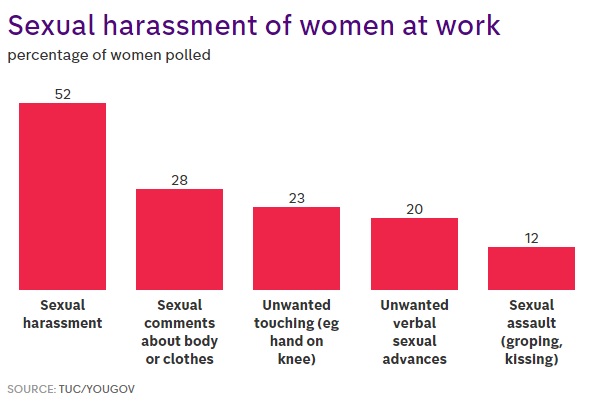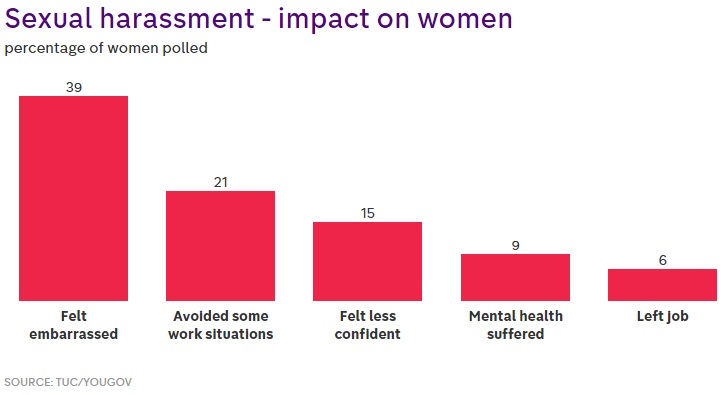Allegations of sexual assault and rape against Harvey Weinstein are making headlines around the world.
The Hollywood producer was fired from his own company after a number of women who worked with Weinstein accused him of sexual harassment and assault.
Further allegations of rape have emerged in recent days. Weinstein has issued a statement saying that “any allegations of non-consensual sex are unequivocally denied”.
The story has brought the issue of sexual harassment of women at work to the fore.
How big a problem is it in the UK?
Last year the TUC commissioned pollsters YouGov to survey 1,533 women about workplace harassment.
“Sexual harassment” covered a wide range of activity, from “suggestive remarks” to unwanted sexual advances and sexual assault (like unwanted touching or attempts to kiss).
More than half (52 per cent) of women polled said they had been sexually harassed at some point in their career.
Here’s how some of the detail of the allegations breaks down:
Some 1 per cent of women who took part in the survey said they had been the victim of a serious sexual assault or rape.
Women aged 18 to 24 were more likely to say they had experienced some form of sexual harassment.
There wasn’t much detail about the different industries that women worked in, but women who worked in manufacturing and hospitality and leisure were more likely to complain of sexual harassment than average.
More than half the women (54 per cent) said the perpetrator was a colleague, and 17 per cent said the harasser was their immediate manager or someone else with direct authority over them.
In eight out of 10 cases, the incident took place on work premises. In 14 per cent of cases, the venue was a social event like a Christmas party. The perpetrator was a man nine times out of 10.
Nearly 80 per cent of the women polled said they did not report the incident to their employer. The most common reason for not reporting was the fear of having a negative impact on relationships at work.
Nearly a quarter of women (24 per cent) who did not make a complaint said they did not think they would be believed or taken seriously.
The impact
Women said the effects of harassment ranged from experiencing feelings of embarrassment, to poor mental and physical health and deciding to leave the job:
Senior colleague made a pass
A similar study of 1,036 women by the law firm Slater and Gordon found similar patterns.
Some six out of ten women said a male colleague had behaved “inappropriately” towards them.
Nearly a quarter said a senior colleague had made a pass at them at some time in their career.
Again, only a minority (27 per cent) reported an incident of harassment to someone more senior than them.





